Remnant of the Vestiges
"The Gods are dead. What remains are mere Vestiges..."
In the beginning, long before the Akran Imperium, Akratia was a land of magic and wonder. In this Age of Myth, Primeval Deities were birthed through the faith and beliefs of the many cultures and races that inhabited Akratia. These Living Gods and Heroic Scions wandered the land, shaping the world to their will and gathering adherents. With worshipers came power; with power came conflict, and through conflict was Death born into the world.
With Death came the Age of Sin as these antediluvian Gods were brought into conflict by their followers. Advances in magic, science, and technology led Mortal beings into ever more destructive wars, and no culture was without their patron God, always available and inextricably tied to the wills and whims of their creators. It was through these conflicts that the Gods first felt the sting of mortality, falling beyond the Black Gates of Death. With their patron God's demise, bereft cultures quickly fell to bloody conquest and a primal truth was realized across Akratia: with divine power came safety, and that people's God that claimed the highest power would be masters over all others.
Such it was that the Veil was pierced, and the Gods reached for power that had, even in their immortal youth, been long forbidden - that of Fate itself. Reality's answer to this Carnal Sin was immediate - the Gods were severed from their adherents. They retained what power they had, but no longer could a follower's faith bolster a God's reserve, and no longer could a God's power maintain society. As civilization collapsed around them, many of the Gods-now-Riven fell into obscurity, wasting what remained of their power and disappearing from the world. Those few Gods that could, invested their remaining power into the land itself, imbuing their places of power with a remnant of their former power - a Vestige.
Each Vestige is the remnant of an Elder God's power. These beings are still dead - still faded from the world, murdered by the incessant needs of their followers, but through their Vestiges, a shard of their power, of their basal desires, remains and can be temporarily summoned and bound into reality by those with sufficiently powerful souls. Summoning a Vestige requires four aspects: Seal, Manifestation, Sign, and Influence.
Seal
The easiest way to summon and bind a Vestige is through the drawing of its Seal. Each Vestige has a unique arcane sigil. The Seal can be drawn in chalk, charcoal, blood, or whatever else might be handy.Manifestation
Sometimes the remnants of a Vestige responds to a summoning in person, or at least the closest thing to in-person that a mortal can comprehend. They appear as an image - a supernatural illusion in the immediate area that they are summoned to. The Vestige may speak or make other noises, but never leaves the immediate area in which they are summoned.Sign
When you bind your soul to a Vestige, it becomes a part of you and shows outwardly through the Vestige's Sign - a physical change. The Sign can be hidden by magic or mundane means, such as a hat.Influence
In addition to the physical changes being bound to a Vestige brings, it may also change the behavior of its invoker: their personality and their emotions.Make a Pact
When you attempt to bind a Vestige to your soul, find a place of power important to that Vestige and choose three of the following conditions:
- You must draw the Vestige's Seal, visibly, on a relatively flat surface
- The Vestige will manifest itself
- You will carry the Vestige's Sign while it is bound to you
- The Vestige will influence your thoughts and emotions while it is bound to you
Roll +CHA. On a 10+, Hold-3. On a 7-9, Hold-1. You can spend this hold to perform the move associated with the Vestige. When your Hold reaches zero, the Vestige is released from your soul, and returns to its place of power.
Kura, Vestige of Preservation
The Order Scholaric believes the Vestige known as Kura originated deep within the Heaina Savannah of Akratia, though her original tribe is believed to have been wiped out early in the Age of Myth. This drove Kura mad with grief and carved in her a drive to protect, preserve, and avenge any that submitted to her will. In this way, Kura built a confederacy of matriarchal domination, uniting all folk of the savanna and plains that were willing to submit entirely to her command. Through this union, Kura ravaged the settled peoples, bringing glory and treasure to her obeisant clans - to her family.
In these raids, Kura was known to take the field personally, striking a terrifying visage with her dual blades, seemingly always slick with the blood of those that would harm her family. Since the annihilation of her founding tribe, Kura has worn a skull mask, revealing to none her true appearance, though the numerous rings piercing chest and arms more than distinguishing her.
It was Kura's role as master within the confederacy that allowed the deity to survive when Reality severed her divine connection to her people. While her power slowly waned, her family built shrines across Akratia that the memory of the Heaina Guardian might live forever. In these shrines, Kura's Vestige remains.
Seal
Kura's Seal is that of a dozen triangles representing the countless tribes in Kura's family arrayed before a beast's skull representing Kura, and surrounded by a circle representing their unity.Manifestation
When called by a binder of sufficient strength, Kura appears in all her glory demanding obeisance. For those binders of weaker dispositions, an animal may appear instead, always female and always with the attitude of one who dominates.Sign
When you bind your soul to Kura, your body undergoes a transition. Depending on the strength of your connection, masculine traits become feminine and feminine traits become masculine.Influence
You are suffused by a dominating drive to force others into submission and to protect those that have already submitted.Move: Command of the Mother
Give an NPC an order and spend 1-Hold. They choose one:- Do what you say
- Attack you
- Back away cautiously, then flee
Maal, Vestige of Tides
To worship Maal in the Age of Myth was to worship uncertainty and irregularity. Her power over the tides and seasons could save a village during famine... or doom one rich with feast. To follow Maal was to understand that all things act in cycles, and that nothing was predictable. The tide goes in, the tide goes out. Only Maal knew when such things would happen.
When she strode the land, Maal could be recognized by long black hair framing a face painted half in deep blue and the staff of blackwood wrapped in chains, always carried at her side. In the time of wandering, Maal gathered her followers from criminals, traitors, apostates, and restless wanderers - those men, elves, dwarves, and halflings that refused to comply with any 'civilized' order.
When the gods were severed from their followers after the piercing of the Veil, Maal was one of the least affected deities. Never one to expend her power in a regular fashion, Maal wasted away slower than the others, and in the end left sufficient power invested in the land to survive as a Vestige.
Seal
Maal's Seal is a series of concentric geometric symbols, each flawed or marred in some random fashion.Manifestation
Maal can appear in a variety of ways, depending on the strength of the binder's call, from a random shifting of supposed constants in the area (tree leaves turning color, temperatures changing) to a full manifestation of Maal herself, though her voice is an always changing pitch, tempo, and tone.Sign
When you bind a shred of Maal's power to your own soul, all those around you can faintly hear the tide lapping against a shoreline, though they'd be hard pressed to locate where the sound was coming from. Additionally, a faint blue colors half of your face - the stronger your connection with Maal, the deeper the blue.Influence
You find yourself in disdain and unable to comply with powers meant to contain the natural ebb and flow of the natural world.Move: Inevitable Cycles
When you touch an enemy's equipment (weaponry, armor, gear, etc) and spend 1-Hold, you rot it away to nothing, advancing the natural cycle of its life to its end point. At best, this completely destroys armor and weaponry to nothing, leaving your enemy with nothing. At worst, it inflicts the Fragile tag on that equipment, making it easily breakable. Additionally, so long as you have Hold with Maal, anytime you gather rations, gain +1d6 rations - seeds that have not yet matured are advanced in their cycle and turn into edible food. Anytime you consume rations, consume an extra +1d4 rations - food that was good has now advanced in its cycle and rotted."Tide goes in. Tide goes out. Never a miscommunication. You can't explain that."
"What about Maal?"
"Heresy! Dead gods have no power..."
Tehnek, Vestige of Insight
The patron of Antarch did not emerge as the other gods. In fact, according to what records exist, Antarch flourished on its own prowess for centuries, though their agents were always seemed preternaturally capable of rooting out traitors and spies. Of course Antarch always had a patron god, but the Tehnek of the Discerning Eye always preferred to remain hidden.
Tehnek's concealment ended when the gates of Antarch were broken down and the city's people suffered under the anger of their enemies. Where Tehnek has Tehnek sought power. preferred to When the gates of Antarch were opened and the invading armies allowed in, Of all the gods, the Discerning Eye always appeared the most mortal/*
The Brazen Magus
It’s a different story amongst every people: a man borne aloft on wings of wax and paper that burn to dust in midair, a proud angel of a bright god turning to wickedness, a city of mirrors shattered by the first dissonant note in the music of the spheres. All have their root in pride. Sensible people know not to emulate the examples that the just and cruel gods leave for us mortals.
Magi are seldom sensible. The brazen magus made the study of folly and arrogance his specialty. He rebuilt the wings of desire, he wove a city of mirrors out of sunshine and moonsilk, and he called forth that first dark angel and spoke with her of redemption and choice.[br[
Sure enough, the gods punished him for each and every one, a thousand times over till he choked to death on the rotten fruit of his hubris. But that didn’t stop him. Through blood, and suffering, and even past the black gates he still did not shy from stealing the fire of the gods.
Most speculate that they put him where they did next because they couldn’t think of any other punishment that would stick.
Sign
A pair of ornate brazen wings erupt from your back, shining with brass feathers and letting out little clicks and clacks from the magic-fueled clockwork inside.
Influence
To thwart the will of authority, and to suffer nobly for it.
Move: Armor of Arrogance
Spend Hold to boldly stride into danger to satisfy your pride - your foes are always surprised by your arrogance, giving you the opportunity to make the first move. Additionally, so long as you have Hold, your mind is completely your own and cannot be enslaved by the sorcery or demagoguery of others. You can still deceive yourself quite well, of course.
The Frost Angel
The wrathful Frost Angel used to be a force for good, until it failed a seemingly impossible task. While neither good nor evil, its distrust of the divine shows through in its bound soul.
Sign
Your voice gains a peculiar quality, both hollow and guttural.
Influence
You distrust clerics, paladins, and other divine devotees.
Move: Icy Glare
When you fix your glare on a foe, choose a location and roll +WIS. On a 10+, choose an additional location.
- Head: Their eyes frost up and teeth chatter uncontrollably - until defrosted, they will have trouble seeing and their chattering teeth will give away attempts at stealth
- Arm: They drop anything they are holding - they can strike with fists, but deal 1d6 damage to themselves if they do
- Legs: Their stiff frozen legs make it hard to move
The Forlorn Child
Abandoned by gods and men, none know why this child rests in the place between all worlds. No one knows why its toothsome mouth is filled up with blinking eyes, or why it’s pale skin weeps and sobs quietly when there’s anyone around to hear.
There are a lot of theories though, particularly amongst the more callous scholars of pact magic. A bastard demigod rejected by his mortal mother and deific father alike. An innocent babe sacrificed to end a war between heaven and hell, which grew up in shadow. The living embodiment of every parents fear.
No one knows, but it wants to tell you. Just listen close and try not to mind the smell of rotting flesh and broken promises.
Sign
Tiny eyes line the inside of your mouth and throat and your skin grows salty, pale, and moist.
Influence
To never be abandoned or unloved, even for a moment.
Move: Tears of the Lost
Spend Hold to cause tears to leak from your skin. The tears are a potent poison (Ingested, Dangerous-to-anyone-but-you). When a living creature ingests them, it becomes overwhelmed by a crippling feeling of sadness and abandonment. How the creature responds is up to them. So long as you have Hold, you can see clearly even in pitch blackness. Any torches, candles, or other small, mundane light sources in your presence immediately flicker and die unless you will them not to with a conscious effort.
The Prince of Abundance
There are guardians in ever pit of hell to guard its dark miracles. Slavering fiends bound tight with chains of hellfire, too dangerous to leave the bounds of their iron vaults. But there are some treasures too precious to be kept in any empty vault. Such evil artifacts require a more personal touch.
For eons the Seere, demon of abundance was their guardian, until he failed in his duties. An upstart warlock stormed the hells and pillaged the most unholy treasures of hell. For his failure No scourging fire or lashing chains could suffice.
He was expelled from hell, from the world, from reality for his crimes. Now he wants only to share his bounty with you and the entire world. Purely out of the goodness of his own heart, of course; that each gift he gives is a personal insult to his former masters is just a bonus.
Sign
Plants blossom, and man-made objects appear more beautiful and luxurious in your presence.
Influence
To bestow generous gifts and perform acts of ostentatious charity.
Move: Neither Here nor There
Spend Hold to cross the void between worlds in an instant to teleport anywhere within Near range so long as you can see your destination. So long as you have Hold, when you taste the blood of someone who has lost a treasure, you gain an uncanny sense of direction that will always guide you towards the lost item. You may only sense the location of one such item at a time.
The Emperor
The Knight
The Tracker
The Huntress
Vestiges
The Devourer
The Devourer was once a powerful wizard, and later, a powerful lich. Its legend lost to time, it is unclear whether it ascended to another plane of existence, or was banished. Either way, it seeks to regain the power that it once had.
Sign
A gem replaces one of your teeth.
Influence
You evince a strong hunger for influence and primacy.
Move: Paralyzing Touch
Your touch locks up the muscles of your victim. While not completely paralyzing, they find it hard to move, and deal 1d4 less damage until cured.
The Harbinger of Eternity
Legends abound of great beasts whose appearance is a sign of a forthcoming apocalypse. Of course, the heroes defeated these terrors, else we would not be here today. The Harbinger of Eternity is a defeated monster of nightmares, resigned to its failures.
Sign
Your lower jaw increases in size and sprouts two tusks.
Influence
You can't help but be pessimistic. At best, you are quietly resigned to your own failure.
Move: Aura of Despair
One enemy per Hold spent is afraid of you as long as you maintain the Vestige. Their reaction is up to them: flee, panic, beg, or fight. You cannot target entities with less-than-animal intelligence (magical constructs, undead automatons, and the like).
The Star Emperor
Some say that nobility are made of something special, or descended from the gods themselves. The Star Emperor is the embodiment of royal blood, but also subject to the curse of inbreeding.
Sign
A face appears on your torso, a vestigial conjoined twin.
Influence
You become aloof and use stately gestures.
Move: Aura of the Emperor
Give an NPC an order. They choose one:
- Do what you say
- Back away cautiously, then flee
- Attack you
The Dragon Slayer
Once a powerful hunter, the Dragon Slayer's soul was traded away by the forces of good to stay the wrath of the Apocalypse Dragon. Pressed into the service of evil, the Dragon Slayer was a formidable enemy to good, but was eventually defeated, her soul abandoned to the abyss.
Sign
One of your hands becomes thickly scaled.
Influence
You feel pity for outcasts and make efforts to befriend any you meet.
Move: Chromatic Strike
Choose an enhancement for your next attack:
- Acidic: +1-Damage, +1-Piercing
- Charged: Add Stun
- Gaseous: Choose an additional range
- Flaming: Add Messy
- Frozen: +2-Piercing
The Deposed Lord
As a legendary ruler in Hell, the Deposed Lord became a victim of the schemes and betrayals of his fellow devil lords. Although many-eyed, he never saw it coming.
Sign
Two extra pairs of devilish eyes open on your head, equidistant from your own eyes.
Influence
You become overly trusting and loyal of your allies.
Move: All-Around Vision
You are never found defenseless or surprised. Spend Hold when you would be surprised to say, "I saw it coming, and..."
The Angel in the Angle
Good architecture and engineering can end a siege before it begins, and the Angel in the Angle was responsible for many advances taken for granted today. Believing himself impenetrable behind his walls, the Angel in the Angle grew proud and neglected other defenses, and was defeated from within.
Sign
Your body takes on the appearance of cracked stone.
Influence
You lose any normal sense of shame of embarrassment.
Move: Imprison
The geometry of the world around your target becomes difficult. They cannot leave the spot they are standing in.
The Dreaming Duke
For the entirety of his mortal rule, the Dreaming Duke terrorized his people, but he was no mortal. He lived as a demon, and died to become a ghost, continuing his reign of terror in the dreams of his former subjects.
Sign
Your hands are flipped, palms where the backs of your hands should be and thumbs on the wrong side.
Influence
You become eccentric, speaking to yourself and imaginary friends.
Move: Inaccessible Mind
You break the effects of magic that would trick your mind, like being Charmed or having your thoughts read.
The Prince of Fools
Although some credit him with discovering the method of binding Vestiges, the Prince of Fools truly sought to steal their power. His early research may prove useful, but his later works are surely flawed - maybe not though, since he is now a Vestige.
Sign
You grow long, black, clawlike nails.
Influence
You think highly of yourself and show contempt towards those who question you.
Move: Iron Claws
Your hands sprout claws, turning into a weapon with Hand range and +1 damage for one swipe.
The King of Killers
Assassin of assassins, murder of murders, the King of Killers killed not out of a sense of duty or honor, nor a paycheck, but only to improve his own skill, and who better to target than professional killers. In death, he could have become a powerful spirit, perhaps even a demigod, but all those who he had killed were there waiting for him.
Sign
The pupils of your eyes glow with red-orange light.
Influence
You are debonair and sly, always with a trick up your sleeve.
Move: Fiery Retribution
When struck in melee, flames wreathe your body and you deal 1d6 damage to your attacker.
The Sovereign of Pandemonium
An ancient spirit, heavily researched and theorized about, yet alien and unknowable. The Sovereign dwells in the darkness, but to bind to its soul is to know of it, and to fear those dark spaces where it might lurk.
Sign
You always seem to be buffeted by a breeze that no one else can feel, even indoors.
Influence
You are averse to darkened areas and loud noises.
Move: Displacement
You are hard to pin down. When you Defy Danger using DEX, take advantage to the roll.
The Key to the Gate
The Key to the Gate is wholly alien. Never was it a mortal that ascended, or a higher power that fell, nor does it seem trapped in this state. Whatever it is, it does not want to be bound.
Sign
You are surrounded by thin wisps of light blue fog, even in a strong wind.
Influence
When confronted to unopened doors or gates, you become agitated and nervous.
Move: Air Blast
You can coax the air to pick a lock for you, as the Thief's Tricks of the Trade, or to smash doors and other not too large, not too tough barriers, as the Fighter's Bend Bars, Lift Gates.
The Sister of the Sea
Once a sea-dwelling giant, born of their giant gods, and slain by their giantish intrigues. The Sister was beheaded by the lord of the Frost Giants, but the strength of her spirit hung on, looking for revenge on her slayer, and his descendants.
Sign
A scar appears around the circumference of your neck.
Influence
You become possessive and stingy, particularly about territory.
Move: Storm Strike
Lightning crackles from your fingertips. Deal 2d6 damage to one target.
The Shadow of He that Was
The demon prince now named the Shadow of He that Was ruled over darkness and death. Powerful enough to ascend to godhood, he was yet slain by mighty adventurers, and while his body reformed in whatever hell he dwelt in, the divine spark took on another form, that of the Vestige, the Shadow of He that Was.
Sign
You seem to be standing in shadow even on the brightest day.
Influence
You are filled with a sense of detachment and an aching feeling of loss and abandonment.
Move: Touch of the Void
Shadows are attracted to a place you touch. You can fill up to a room sized area with supernatural darkness.
The Disappointed Duke
A lord of serpent-men that ruled empires while humans still dwelt in caves, the Duke held so much power, so many followers, that he was on the cusp of deification. In a grand ritual, thousands of slaves were slaughtered, with the Duke absorbing their souls. It was all a trick though, and being full of mortal souls exposed the Duke to a mortal wound from one of his own people, and he found himself trapped between godhood and mortality.
Sign
You gain a lisp and can't help but speak in a sibilant manner.
Influence
You become domineering and aggressive.
Move: Aversion
Disgust fills the heart of your enemies. Spend Hold to choose a number of targets. When not in combat, they will seek to leave your presence. When in combat, they will seek you out if currently not engaged with another foe.
The Merry Murderess
He had it coming. He had it coming. He had it coming all along. So did he, and he, and he. Always with a song in her heart and a smile on her blood-red lips. When she finally died, the gods refused her. The men she sent to the hells petitioned its lords to bar her way. Now she sings her song in the lonely dark between worlds, calling to those broken hearts that don’t want to bleed alone.
Sign
Your voice takes on a sweet and musical cadence, and you hum or sing softly to yourself whenever you inflict violence on someone.
Influence
Take bloody vengeance against love betrayed.
Move: Murderous Draw
Spend Hold to call any unattended weapon to your hand with a split second of focus. You can also use this to draw and ready any weapons you possess with unearthly speed.
The Gilded Duke
The gilded duke had gilded throne.
And a gilded bed to rest his gilded bones.
He ate gilded fruits from a dryad’s tree
The wealthiest fae in all faerie
But one grim day he met a devious rake
And the gilded duke made a gilded mistake
He trusted the rake and it sealed his fate
“There isn’t any gold on those black gates”
Sign
One of the binders hands turns to solid gold, though it’s still capable of grasping, touching, and manipulating objects. The binder's eyes also lose their pupils and turn the solid gold color of a new coin.
Influence
Distrust the council of friend and foe alike. Everyone is trying to steal your wealth.
Move: The Golden Rule
No door or gate to an area that has been recently used by a sentient being can bar your path. Spend your Hold to make locks fall off, bolts slide away, and barricades fall apart. Doors made mostly or completely of cold iron are not affected by this ability. In addition, spend Hold to halve the prices you pay for food, drink, and hospitality in civilized areas. Those who have the gold make the rules.
The Thief who Stole Herself
She is the one who taught the moon to steal the suns light each night. She took the voice of the north wind for a year and a day until it agreed to teach her the language of the clouds. She evaded the watch of the eagle lords to snatch a single feather from the emperor’s only fledgling. She riddled the queen of faerie to a standstill, and stole the soul of a demon prince with a well worded request and a little invisible ink. All for the glory of her scoundrel god.
But those great feats were just the opening act. To cap it off upon her death bed, she turned away from the lord of thieves thus stealing her own soul away from her patron deity. Far be it from the god of thieves to negate a grand heist. No. He did her one better, stealing her soul from the very cosmos.
It’s still unclear how she feels about that.
Sign
No matter what emotions you might otherwise display, your mouth is constantly fixed in a small half-smile.
Influence
To cause outrageous misunderstandings through trickery and cunning.
Move: Language of the Clouds
Spend Hold to whisper to the wind - it'll bear your message to anyone who can feel the wind on their skin. They may immediately respond in kind. Unless you will it otherwise, only your intended recipient hears the message. Anyone trying to eavesdrop simply hears and feels a gentle breeze. So long as you have Hold, however far you fall, you always land on your feet unharmed.
The First Mistake
To err is human, to forgive divine. But that doesn’t mean the gods don’t make the occasional mistake. Or what they consider a mistake, anyway. The creature they cast forth from the universe thinks itself perfect.
Perfectly strong
Perfectly cunning
Perfectly savage
Perfectly adaptable
Perfectly hungry
The gods did well. Now no beast will drink up the stars, gulp down the oceans, and gnaw the earth’s bones. It’ll leave that to you, its vessel.
Sign
Your bones and flesh seem to slowly and subtly rearrange themselves (with all attendant grinding and cracking) whenever someone’s not looking at you.
Influence
To feast upon living, breathing prey until there is nothing left. If there is nothing to feast upon, you must hunt and kill until there is.
Move: Starveling
Spend Hold to unhinge your jaw, enabling you to swallow something (or someone) up to twice your size, if you take your time. This thing (or person) remains safely tucked away in a cyst or gut pouch until you need to vomit them up again. So long as you have Hold, you can digest absolutely anything without difficulty.
The First Sword
Every blade that exists today is a shadow of it. You see, in these days folk (even orcs and such) have pretenses for war. Honor and glory and gods and bloodlust a thousand other pretty little excuses for something they don’t really understand. The smiths are exactly the same. Yes, even the dwarves, though gods know they remember better than most. They make beautiful blades, or blades that tell a story, or blades that erupt in fire or blades that protect a nation.
They all miss the truth that made the first sword great though. The first blade was made only to kill. That purity of intent made it sharper than sky-steel, lighter than a feather, stronger than adamant. It also made it unbelievably dangerous. By the time the greatest sorcerers of the eldest races bound it away beyond reality, the corpses of those slain by it were stacked so high the stink filled the palaces of the gods.
Sign
You bear a jagged sword of flaked black stone in your hand, whatever you do, so long as you are bound to this vestige you cannot get rid of the sword. In addition, the palms of your hands are perpetually stained red with dried blood. It goes without saying that they’ll never be clean so long as you are bound to the first sword.
Influence
The bearer of the first sword does not run or surrender. You can be knocked unconscious, captured, or slain, but you must fight and fight well until then.
Move: Blood-for-Blood
When you take damage in battle from an opponent within your reach, you can spend Hold to have the blade lash out of its own accord and deal 1d4 damage (Messy, Ignores-Armor) to the fool who would presume to harm its bearer. You can also spend Hold to gaze into the black blade of the first sword and name a creature who bears a sword, knife, or dagger (either by description or proper name). You can see and hear them as if you were standing right next to them. Any creature so spied upon can see your reflection gazing out at them through their blade.
The Ruinous Tower
Built by the renowned elven architect Aromere, the ruinous tower was not always known as such. At first, it was known as the House of Di, an ancient and august noble family whose wealth and influence was the envy of all who looked upon them. Indeed, even Aromere grew jealous of the splendor and beauty of the Di family. over the many years that he labored under their patronage, this jealousy grew into bitter hatred and obsession. He resolved to revenge himself upon the house of Di, no matter what the cost.
But not immediately; the jealousy of the fey is a slow-burning, festering thing. It was years before Aromere struck, but when he did he struck brutally and without mercy. The last scion of the house of Di took 3 years to die. Aromere cleaned the blood from his hands and ashamed of his deeds, tried his best to forget them.
He forgot, but the tower never did. Others went within the tower throughout the ages. Monsters looking for a lair, adventurers seeking the treasures of the Di's, cultists drawn to its growing darkness; all of them perished, or worse.
Binders argue endlessly how the ruinous tower perished. If its evil was too much for the gods of good to bear. If some hermit-magus of the ancient orders sent it across space and time the save the world from the spite Aromere embedded in its stones. Or if it still waits silently in the darkness for someone new to walk across its threshold.
Sign
Your skin shifts in color and texture to resemble worn granite stained with blood.
Influence
To draw the curious to their doom.
Move: Spectre of the Tower
When you hold the dark splendor of the ruinous tower in your mind, spend Hold to make a solid reflection of the original appears before you in the nearest open space, slowly expanding to fill the area. The reflection is three stories tall, with walls of indestructible black granite, murder holes, and arrow slits. Within are ancient but decadent appointments suitable for entertaining (or hosting) nobility. You may open, close, lock, or unlock any door or window of the tower with an effort of will. You may only have one tower summoned at a time and it must be summoned in an open area that can bear its weight. So long as you have Hold you may let Aromere's voice speak through you to take advantage to Manipulate others to act on their secret hatreds and jealousies.
The Thrice Blessed Knight
There was once a grand and ancient kingdom whose knights rose up against their rightful king with greed in their hearts and daggers in their hands. So began the war of a thousand knives, a civil war unlike any the realm had ever seen before. By the tenth year of the conflict the villages of the kingdom were little more than ghost towns, and the ground it’s manifold factions fought over little more than ashes and dust. All had abandoned their once proud and noble king, now scarred and paranoid in his old age. All except for one: Turvies the True. A warrior and commander without peer, Turvies rode forth and called the remnants of the king’s army back to the kingdom’s ragged banners. In battle after battle he crushed the rebels, and offered nothing but kindness and justice to those small folk exiled by the war. After another ten years, Turvies had succeeded where all others had failed: he delivered the tattered remnants of the kingdom back to his liege lord.
For this leal service, Turvies was granted three boons of his choice. Every binder who has dealt with Turvies knows these boons, as the vestige whispers them (and the mad king’s answers) each time it is summoned:
“I wish only to be able to see the fruits of my labors, to travel the length and breadth of your majesty’s kingdom.”
“Very well," the Mad King answered. "Neither stone, nor mire, nor river shall stop you. But surely you wish for more.”
“My mount, Valour has been my faithful companion throughout this long campaign. I would ask that he stay with me forevermore.”
“Neither the work of man or god will ever separate you,” said the Mad King.
“Finally my lord, I would ask that I am not accorded any especial recognition for my service. I am a man of common birth, and that is how I wish to live, and die.”
“Then return to your homestead," the Mad King said, "to your simple and quiet life with my blessing. None shall remember you.”
Beware the blessings of Mad Kings.
Sign
Your feet become hooves, akin to a horses and your diction becomes formal and direct, like that of a noble-born knight.
Influence
To serve your rightful masters well no matter the consequences.
Move: Never to Part from Valour
The Mad King bound Turvies to his warhorse body and soul, and when you spend Hold, you can call upon its speed. Until sunrise or sundown, you can run as quickly as a purebred warhorse can gallop, and walk as fast as one can trot. So long as you have Hold, you may change the appearance of your clothing and features at will, so long as you do so to appear unremarkable amongst the company you currently keep. If you perform an act of great valor while so disguised, your true form momentarily becomes visible.*/
Credit to CrimeBiscuit for Vestige IdeasThe Brazen Magus
It’s a different story amongst every people: a man borne aloft on wings of wax and paper that burn to dust in midair, a proud angel of a bright god turning to wickedness, a city of mirrors shattered by the first dissonant note in the music of the spheres. All have their root in pride. Sensible people know not to emulate the examples that the just and cruel gods leave for us mortals.Magi are seldom sensible. The brazen magus made the study of folly and arrogance his specialty. He rebuilt the wings of desire, he wove a city of mirrors out of sunshine and moonsilk, and he called forth that first dark angel and spoke with her of redemption and choice.[br[ Sure enough, the gods punished him for each and every one, a thousand times over till he choked to death on the rotten fruit of his hubris. But that didn’t stop him. Through blood, and suffering, and even past the black gates he still did not shy from stealing the fire of the gods.
Most speculate that they put him where they did next because they couldn’t think of any other punishment that would stick.
Sign
A pair of ornate brazen wings erupt from your back, shining with brass feathers and letting out little clicks and clacks from the magic-fueled clockwork inside.Influence
To thwart the will of authority, and to suffer nobly for it.Move: Armor of Arrogance
Spend Hold to boldly stride into danger to satisfy your pride - your foes are always surprised by your arrogance, giving you the opportunity to make the first move. Additionally, so long as you have Hold, your mind is completely your own and cannot be enslaved by the sorcery or demagoguery of others. You can still deceive yourself quite well, of course.The Frost Angel
The wrathful Frost Angel used to be a force for good, until it failed a seemingly impossible task. While neither good nor evil, its distrust of the divine shows through in its bound soul.Sign
Your voice gains a peculiar quality, both hollow and guttural.Influence
You distrust clerics, paladins, and other divine devotees.Move: Icy Glare
When you fix your glare on a foe, choose a location and roll +WIS. On a 10+, choose an additional location.- Head: Their eyes frost up and teeth chatter uncontrollably - until defrosted, they will have trouble seeing and their chattering teeth will give away attempts at stealth
- Arm: They drop anything they are holding - they can strike with fists, but deal 1d6 damage to themselves if they do
- Legs: Their stiff frozen legs make it hard to move
The Forlorn Child
Abandoned by gods and men, none know why this child rests in the place between all worlds. No one knows why its toothsome mouth is filled up with blinking eyes, or why it’s pale skin weeps and sobs quietly when there’s anyone around to hear.There are a lot of theories though, particularly amongst the more callous scholars of pact magic. A bastard demigod rejected by his mortal mother and deific father alike. An innocent babe sacrificed to end a war between heaven and hell, which grew up in shadow. The living embodiment of every parents fear.
No one knows, but it wants to tell you. Just listen close and try not to mind the smell of rotting flesh and broken promises.
Sign
Tiny eyes line the inside of your mouth and throat and your skin grows salty, pale, and moist.Influence
To never be abandoned or unloved, even for a moment.Move: Tears of the Lost
Spend Hold to cause tears to leak from your skin. The tears are a potent poison (Ingested, Dangerous-to-anyone-but-you). When a living creature ingests them, it becomes overwhelmed by a crippling feeling of sadness and abandonment. How the creature responds is up to them. So long as you have Hold, you can see clearly even in pitch blackness. Any torches, candles, or other small, mundane light sources in your presence immediately flicker and die unless you will them not to with a conscious effort.The Prince of Abundance
There are guardians in ever pit of hell to guard its dark miracles. Slavering fiends bound tight with chains of hellfire, too dangerous to leave the bounds of their iron vaults. But there are some treasures too precious to be kept in any empty vault. Such evil artifacts require a more personal touch.For eons the Seere, demon of abundance was their guardian, until he failed in his duties. An upstart warlock stormed the hells and pillaged the most unholy treasures of hell. For his failure No scourging fire or lashing chains could suffice.
He was expelled from hell, from the world, from reality for his crimes. Now he wants only to share his bounty with you and the entire world. Purely out of the goodness of his own heart, of course; that each gift he gives is a personal insult to his former masters is just a bonus.
Sign
Plants blossom, and man-made objects appear more beautiful and luxurious in your presence.Influence
To bestow generous gifts and perform acts of ostentatious charity.Move: Neither Here nor There
Spend Hold to cross the void between worlds in an instant to teleport anywhere within Near range so long as you can see your destination. So long as you have Hold, when you taste the blood of someone who has lost a treasure, you gain an uncanny sense of direction that will always guide you towards the lost item. You may only sense the location of one such item at a time.The Harbinger of Eternity
Legends abound of great beasts whose appearance is a sign of a forthcoming apocalypse. Of course, the heroes defeated these terrors, else we would not be here today. The Harbinger of Eternity is a defeated monster of nightmares, resigned to its failures.Sign
Your lower jaw increases in size and sprouts two tusks.Influence
You can't help but be pessimistic. At best, you are quietly resigned to your own failure.Move: Aura of Despair
One enemy per Hold spent is afraid of you as long as you maintain the Vestige. Their reaction is up to them: flee, panic, beg, or fight. You cannot target entities with less-than-animal intelligence (magical constructs, undead automatons, and the like).The Dragon Slayer
Once a powerful hunter, the Dragon Slayer's soul was traded away by the forces of good to stay the wrath of the Apocalypse Dragon. Pressed into the service of evil, the Dragon Slayer was a formidable enemy to good, but was eventually defeated, her soul abandoned to the abyss.Sign
One of your hands becomes thickly scaled.Influence
You feel pity for outcasts and make efforts to befriend any you meet.Move: Chromatic Strike
Choose an enhancement for your next attack:- Acidic: +1-Damage, +1-Piercing
- Charged: Add Stun
- Gaseous: Choose an additional range
- Flaming: Add Messy
- Frozen: +2-Piercing
The Prince of Fools
Although some credit him with discovering the method of binding Vestiges, the Prince of Fools truly sought to steal their power. His early research may prove useful, but his later works are surely flawed - maybe not though, since he is now a Vestige.Sign
You grow long, black, clawlike nails.Influence
You think highly of yourself and show contempt towards those who question you.Move: Iron Claws
Your hands sprout claws, turning into a weapon with Hand range and +1 damage for one swipe.The Thief who Stole Herself
She is the one who taught the moon to steal the suns light each night. She took the voice of the north wind for a year and a day until it agreed to teach her the language of the clouds. She evaded the watch of the eagle lords to snatch a single feather from the emperor’s only fledgling. She riddled the queen of faerie to a standstill, and stole the soul of a demon prince with a well worded request and a little invisible ink. All for the glory of her scoundrel god.But those great feats were just the opening act. To cap it off upon her death bed, she turned away from the lord of thieves thus stealing her own soul away from her patron deity. Far be it from the god of thieves to negate a grand heist. No. He did her one better, stealing her soul from the very cosmos.
It’s still unclear how she feels about that.
Sign
No matter what emotions you might otherwise display, your mouth is constantly fixed in a small half-smile.Influence
To cause outrageous misunderstandings through trickery and cunning.Move: Language of the Clouds
Spend Hold to whisper to the wind - it'll bear your message to anyone who can feel the wind on their skin. They may immediately respond in kind. Unless you will it otherwise, only your intended recipient hears the message. Anyone trying to eavesdrop simply hears and feels a gentle breeze. So long as you have Hold, however far you fall, you always land on your feet unharmed.Remove these ads. Join the Worldbuilders Guild


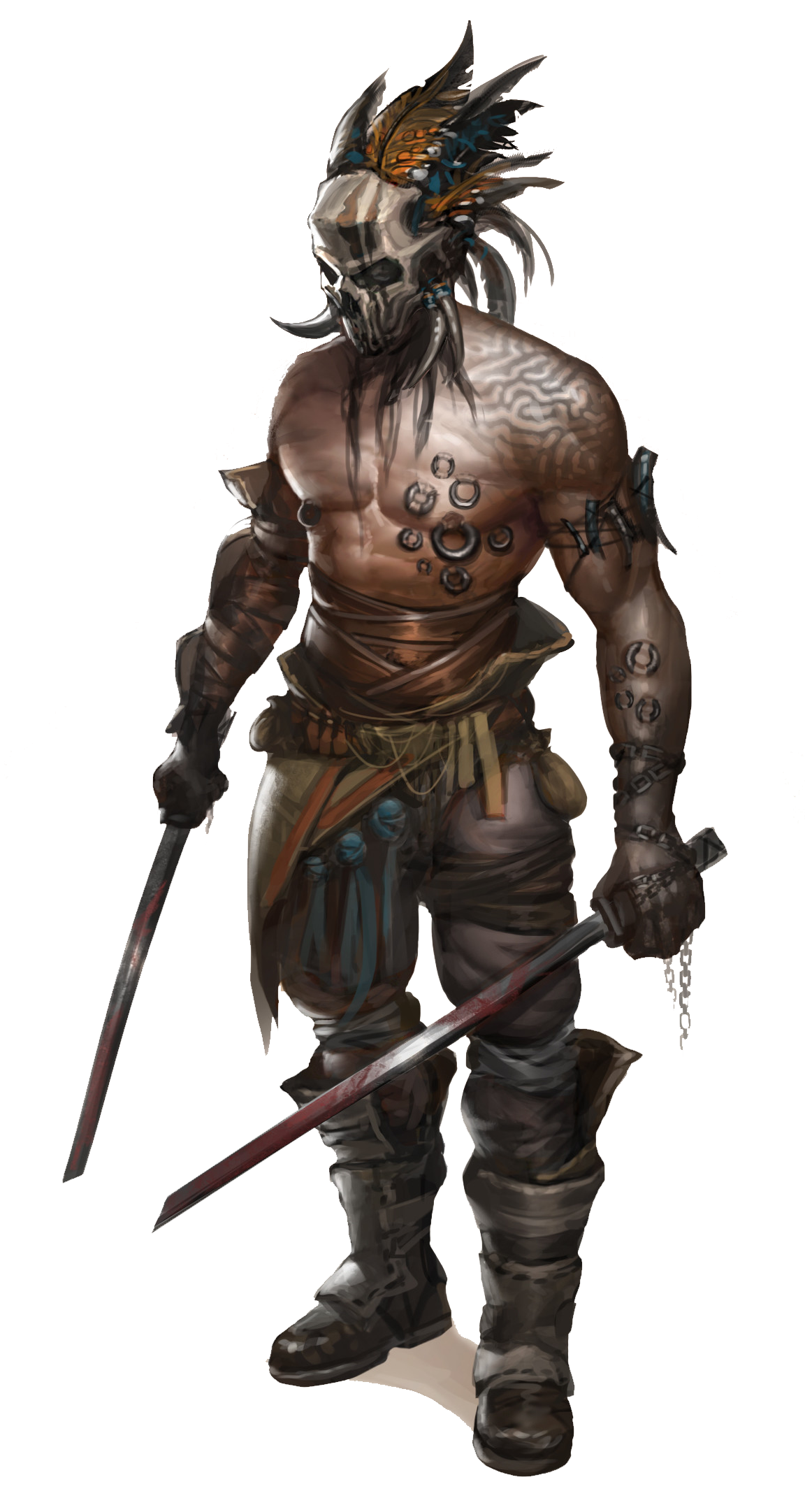
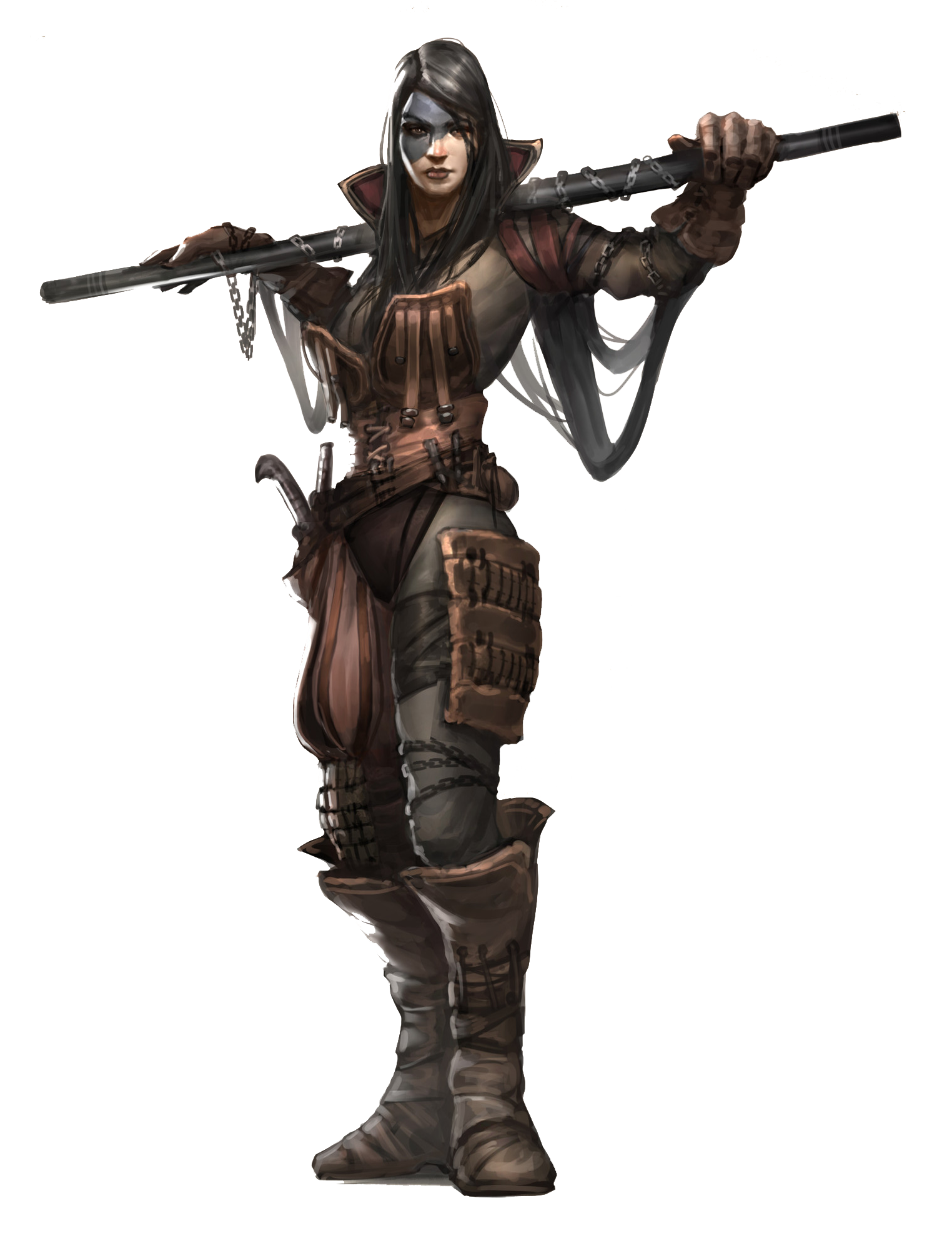
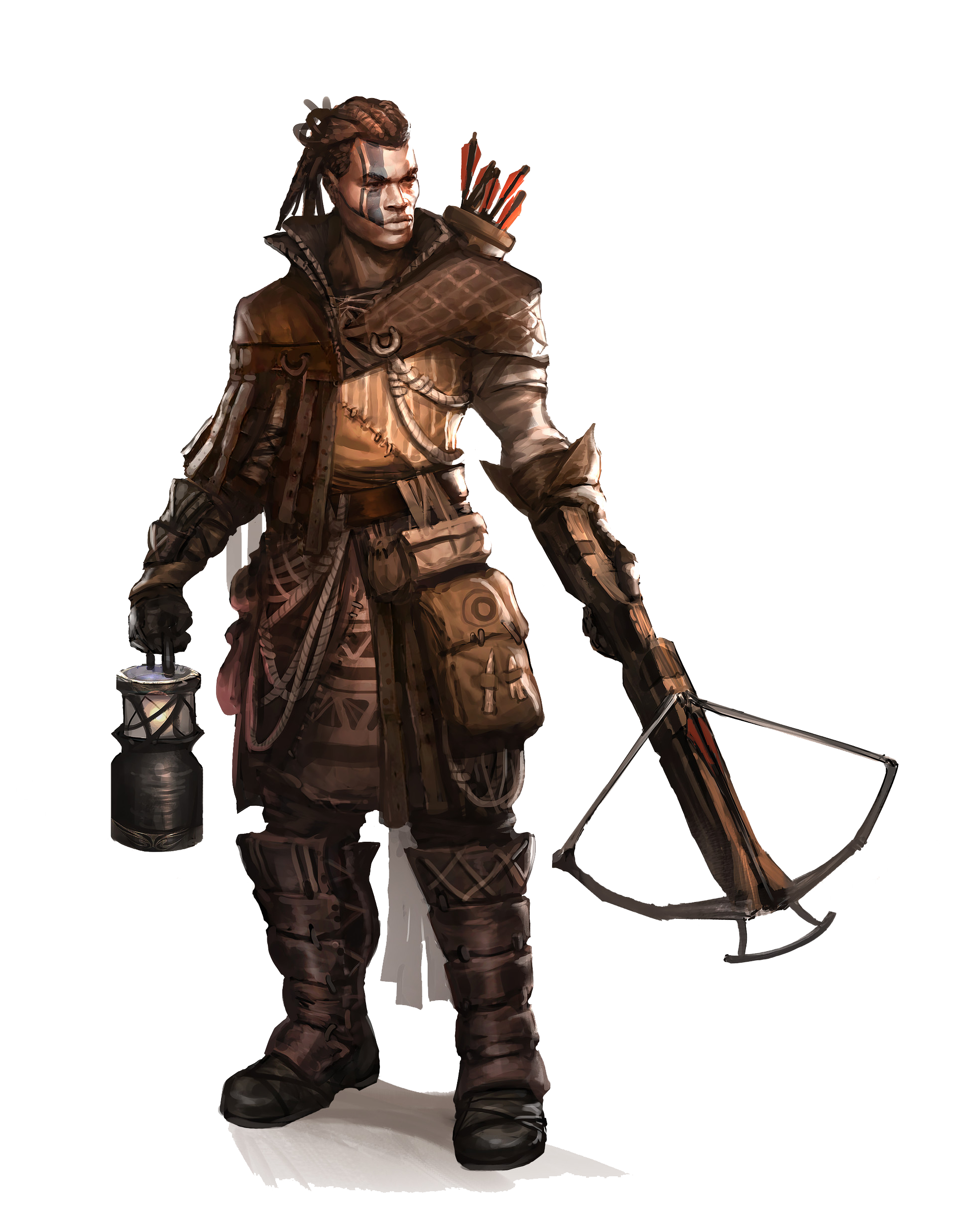
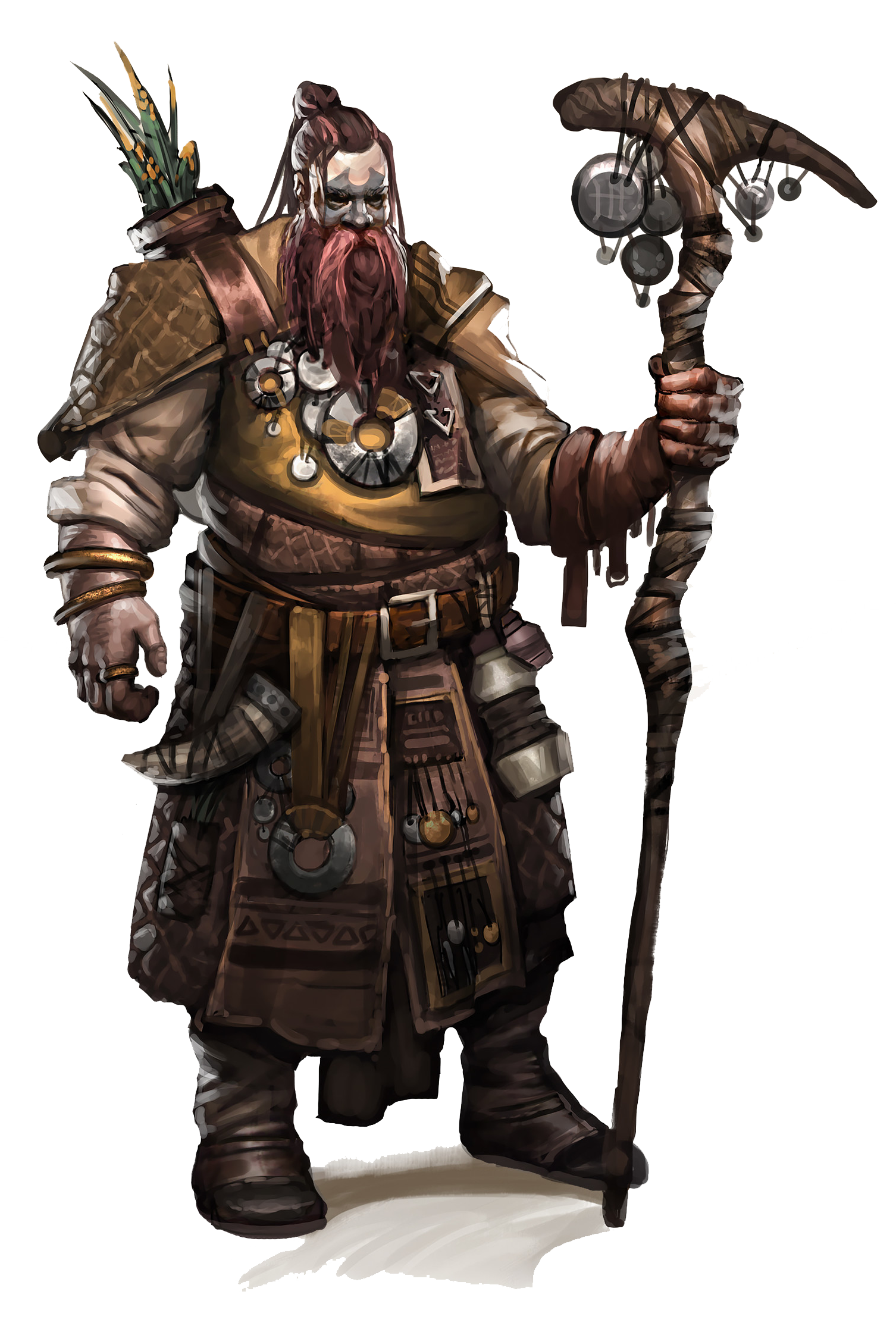
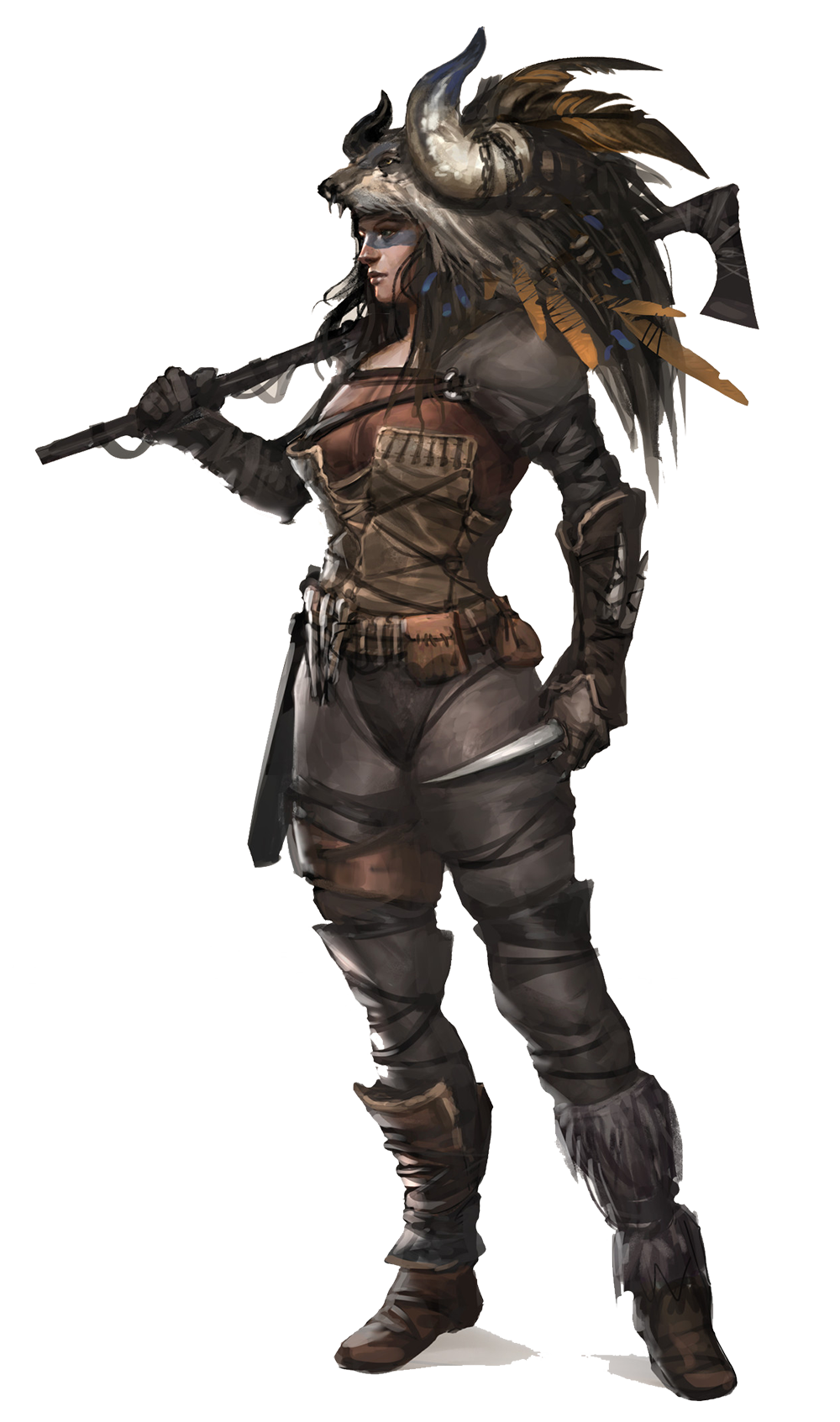
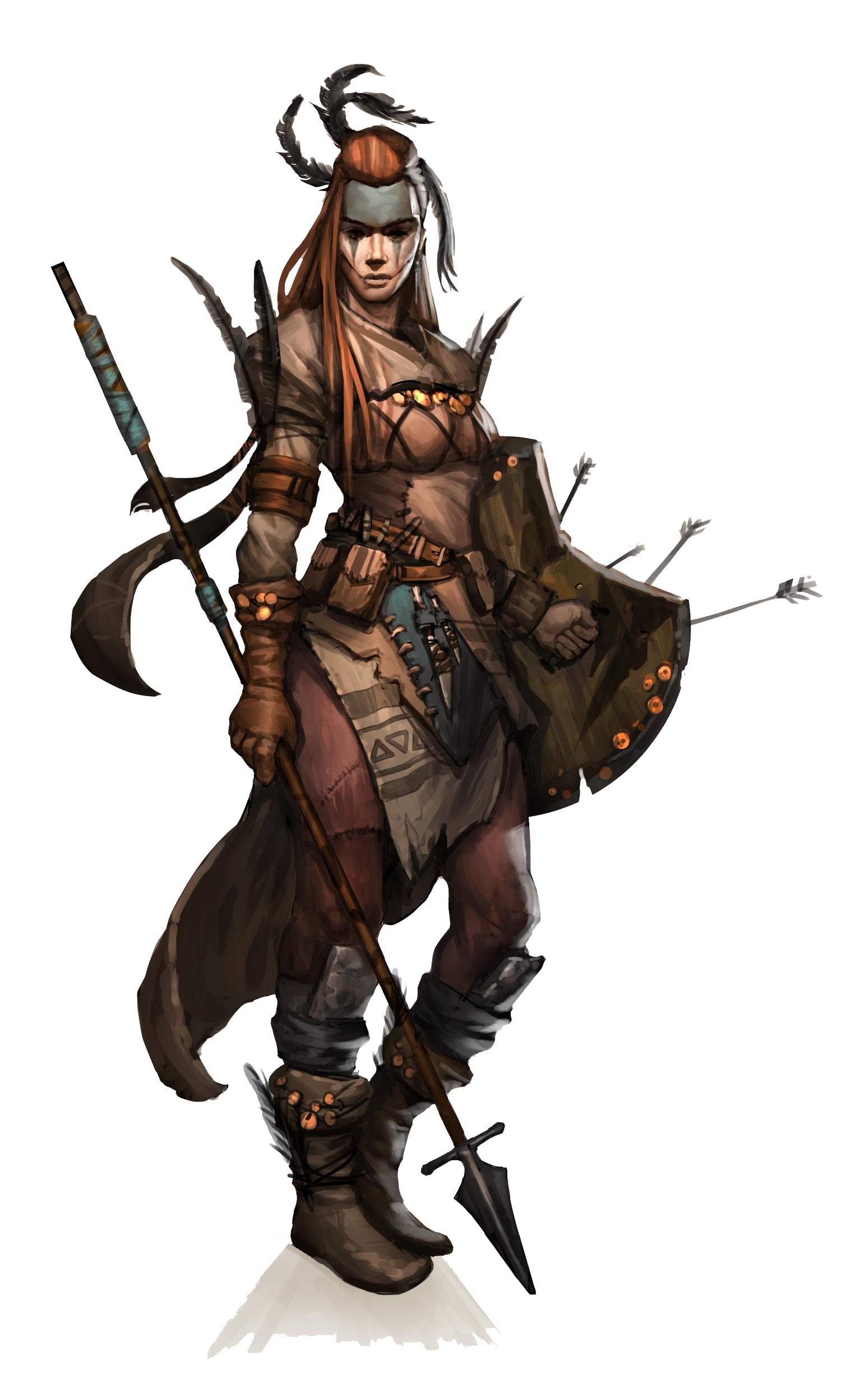
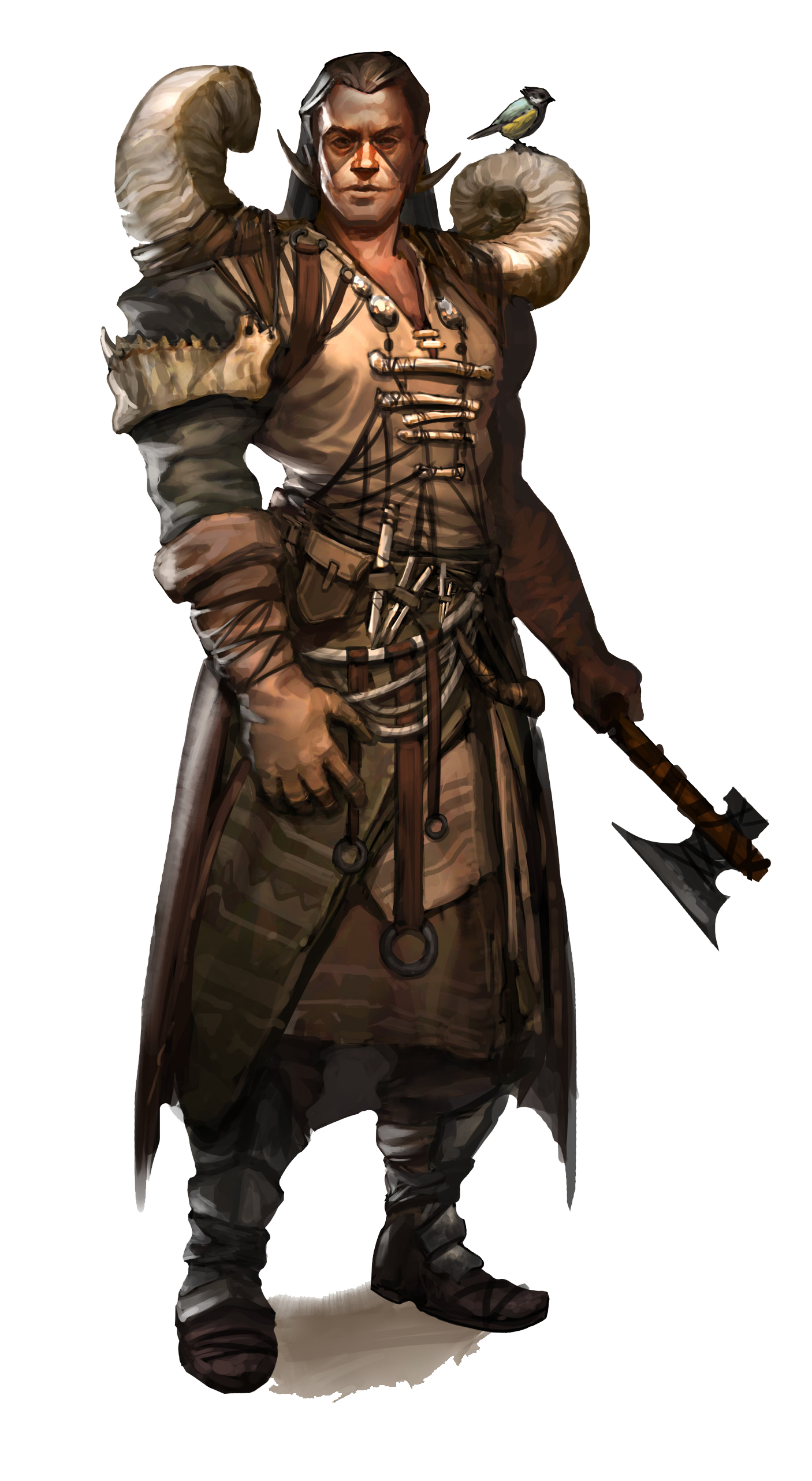
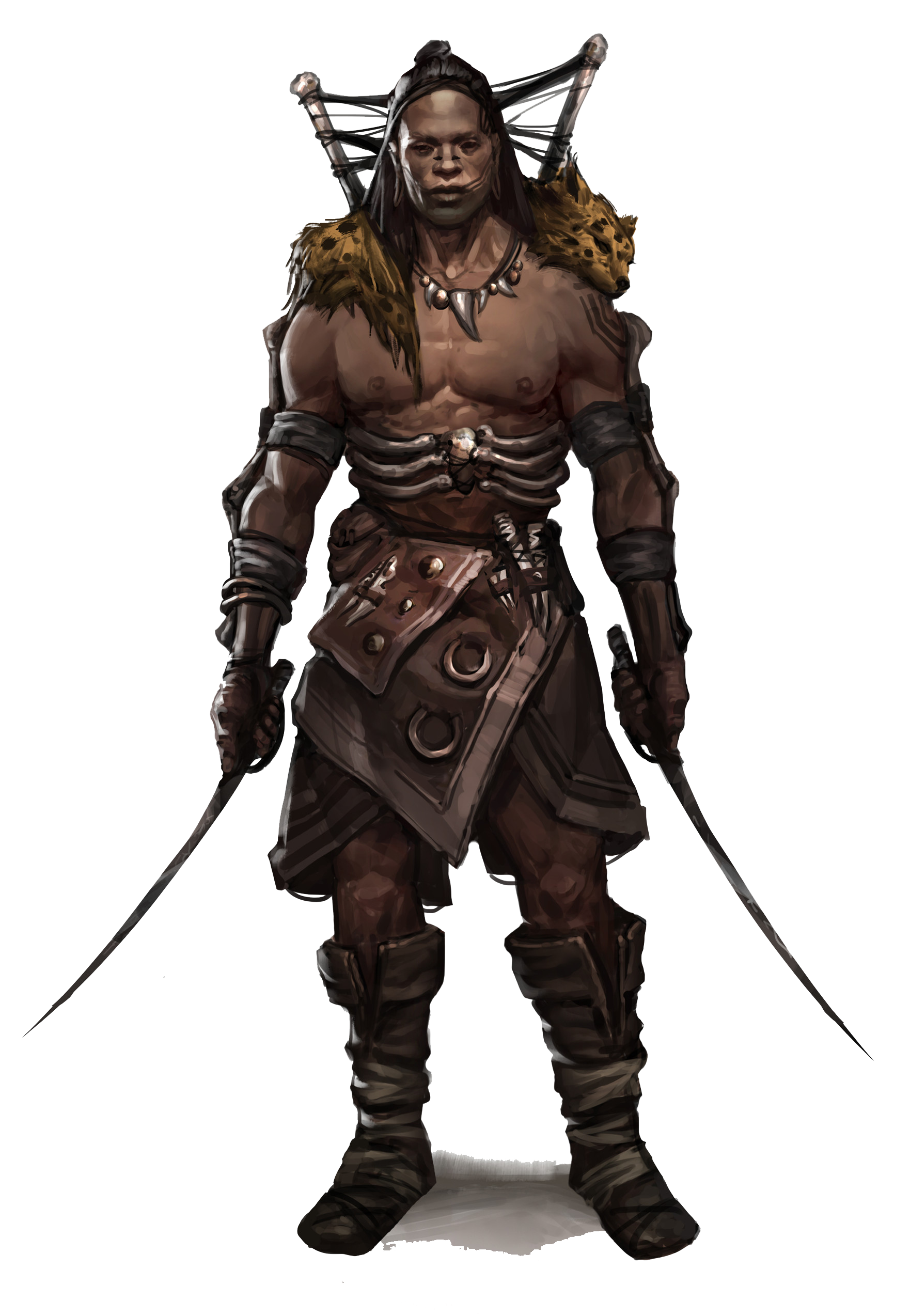







Comments